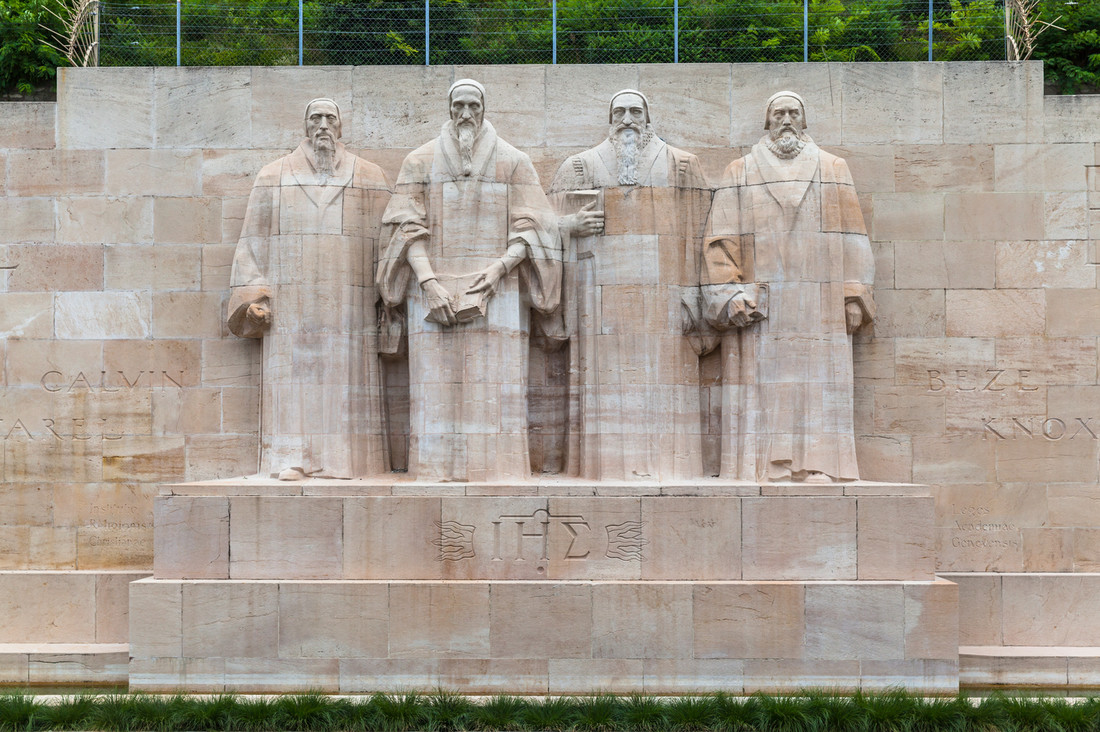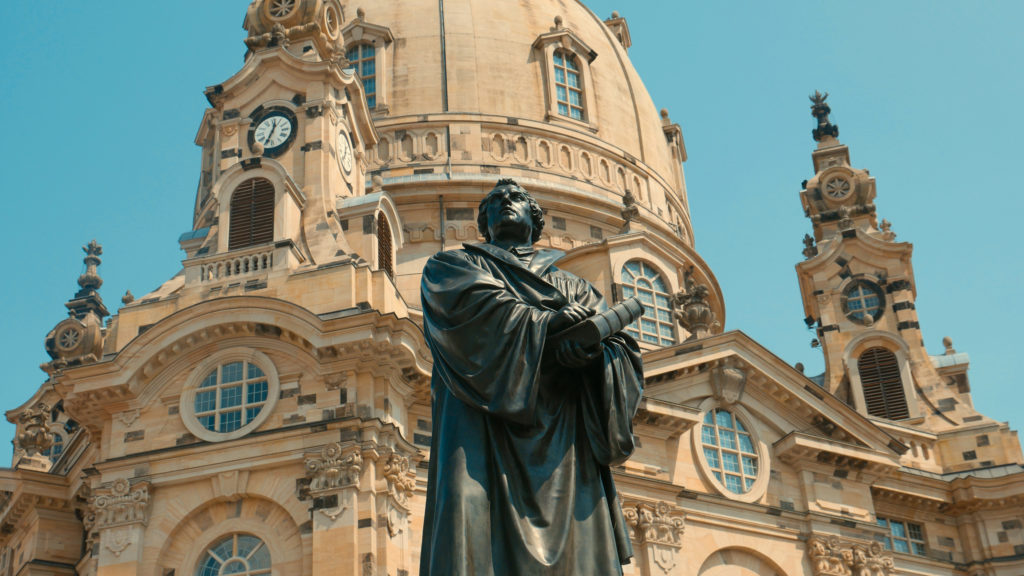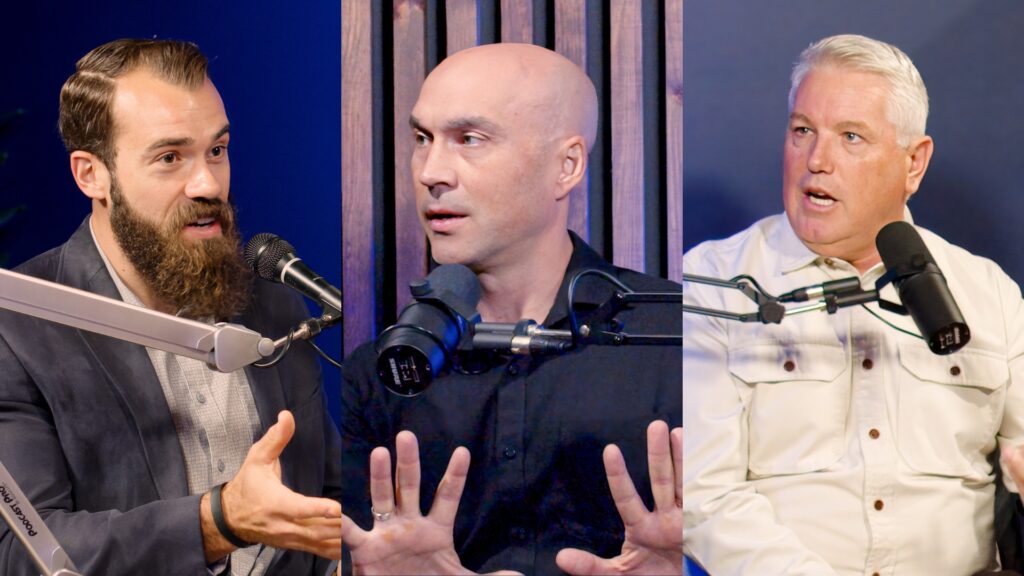Was the Reformation unconcerned with the rugged missionary call, preferring theological debates over real evangelism? It is true that Protestants have not always prioritized the Great Commission, and not all the Reformers would have been friendly towards many of the modern baptistic missionary and church movements.
But as we celebrate the anniversary of the Reformation and Martin Luther’s 95 Theses as its igniting spark, there is good reason for the missions-minded to give thanks for what God did 500 years ago.
Here are just five ways in which the Reformation made an inestimable impact on global Christianity—and essentially birthed modern missions.
1. Recovery of the Gospel
Missions is meaningless without the gospel. And it’s the heart of the gospel—justification by faith—that the Reformers took their lives in their hands to proclaim.
It would be false to say that the gospel was “lost” prior to the Reformation. The Lord Jesus promised to build his church and defend it against all attacks (Matthew 16:18). But within what called itself the church, the biblical gospel had been sidelined. A sacramental system had emerged which choked grace by filling parishioners with fear and sending them through a labyrinth of works they hoped would be sufficient to please both God and the church.
Sola fide—faith alone. Sola gratia—grace alone. Solus Christus—Christ alone. Sola scriptura—Scripture alone. Soli Deo Gloria—glory to God alone. These five solas embody the biblical gospel recovered through the Reformation. But consider the missiological implications of just one of these slogans: faith alone.
In Genesis 12, God unveils his global purpose when he covenants with Abram: “…in you all the families of the earth shall be blessed” (v. 3). What is this global blessing? Health? Wealth?
Neither. The Apostle Paul explains that “the Scripture, foreseeing that God would justify the Gentiles by faith, preached the gospel beforehand to Abraham, saying, ‘In you shall all the nations be blessed’” (Galatians 3:8).
The blessing God promised to all the nations in Genesis 12 is justification by faith—the article on which, according the Luther, the church stands or falls. And it’s the article on which missions stands or falls too. The Reformation put the good news back into the hands of those who could carry it to the nations.

Sculptures of four Reformers at center of Refomation Wall, Parc Des Bastions, Geneva, Switzerland. Guillaume Farel, John Calvin, Theodore de Beze, John Knox (Photo: VogelSP)
2. Explosive Growth in Theological Education and Missionary Sending
Although the major emphasis of the Reformation was on reaching Europe’s nominal Christians—not so much the unreached just yet—the Reformation was overwhelmingly missional in character.
This renewal of rich, gospel-centered theology launched a missions movement—as it always does. Under John Calvin and his robust five-sermon-per-week ministry, Geneva, Switzerland became a dynamic, missionary-sending hub deploying upwards of 1,200 pastors to plant more than 2,000 churches in Calvin’s native France by 1562. Also in the mid-16th century, Protestants in landlocked Geneva partnered with French churches to send ministers across the ocean to Brazil for the first time—perhaps whetting the Genevans’ appetite for future missionary pursuits.
Calvin himself remarked, “A good missionary is a good theologian. A good theologian is a good missionary.”
The missionary fervor spread beyond France, too—notably to church leaders like John Knox, who famously prayed, “Give me Scotland, or I die.”
If anything, it can be said that the Reformation was itself a missionary movement—one aimed not so much at cross-cultural evangelism but at reaching the masses of unconverted churchgoers in “Christianized” Europe.
3. Propagation of Scripture
Like a lantern dispelling the darkness, the translation of Scripture and the preaching of the Reformers had a combined, multiplying effect on spreading the gospel.
John Wycliffe, the proto-reformer, primed the pump for the Reformation by translating the Bible into the vernacular language of the people. Later, Wycliffe’s legacy would inspire Jan Hus and Martin Luther, prompting Luther to author his own German Bible translation. In England, William Tyndale came to be regarded as the father of the English Reformation—not just because he preached the Scriptures like the other Reformers, but because he translated the Bible into English.
Contrary to the Roman Catholic Church’s insistence that the clergy must be the gatekeeper of all theological truth, the Reformation emphasized how essential it is for individuals to hear the Word and personally respond in faith. And as more people engaged with the Word for the first time, it became more urgent to translate and disseminate the Bible.
Today, missions experts believe that one key to reaching unreached people groups is to put Scripture into their “heart language”—the language in which they think. This impulse finds its source in the Reformation.

(Photo: pamela_d_mcadams)
4. Geographic Expansion
Throughout history, the blood of the martyrs has been the seed of the church. This was true in Acts (see 8:1-4) and continued through the Reformation.
While some Reformers paid with their lives, others were driven from their hometowns and lands, spreading Protestant theology as they went. It was France’s inhospitable stance towards the Protestants that drove Calvin to Geneva, where he established his sending base. Similarly, the Anabaptists—though vastly different theologically—spread a missionary spirit as they fled persecution.
Later, persecution from the institutional church in England drove the Puritans, the intellectual heirs of Reformed thought, to the newly-discovered continent across the Atlantic. In the 16th century, David Brainerd emerged as a true missionary to the Native Americans in the northeast, finding that unevangelized peoples could respond simply and directly to the gospel without the missionary first employing the traditional apologetic method that was prevalent throughout Europe.
The famed Jonathan Edwards—also Brainerd’s biographer—would serve not only as arguably America’s most brilliant pastoral-theological mind, but also as a missionary himself to the Mohican people. And Edwards’ Humble Attempt made a groundbreaking case that God’s plan for the church prior to Christ’s return actually included the successful completion of the Great Commission.
Today, due to tremendous expansion of the gospel in Asia and Africa, the center of gravity for global Christianity has shifted to the East and global South. But before that, the Reformation and the flood of mission-minded Protestants who arrived in the Americas forced that center strongly to the West—making it difficult to envision history without the westward spread of believing Christians.
5. The Birth of the Modern Missions Movement
The thread of Reformation missions runs all the way from the Reformers, to the English Baptists, and eventually to William Carey—the father of the modern missionary movement.
Though famously scolded by a fellow Baptist minister, “When God pleases to convert the heathen, he will do it without you,” Carey didn’t listen to the dissenting voices around him. A cobbler by trade, Carey proudly displayed world maps in his shop and kept demographic data on-hand—early missions mobilization tools employed liberally on his unsuspecting clientele.
In addition to his own missionary efforts in India, one of Carey’s greatest contributions was his masterpiece Enquiry, written to refute the claim that the Great Commission was only given to the Apostles and not to all believers. Carey’s Enquiry mounted a rich, biblical case for evangelism outside the borders of Christendom, and, most impressively, attempted to compile all the data available at the time on world population and religions to survey the extent of the task remaining.
Laboring for the Next 500 Years
The Reformation started a domino effect that culminated in the modern missions movement, and today we continue to reap the benefits. Luther best summarized the embryonic missionary spirit of the Reformation in the preface to his New Testament translation: “If he have faith, the believer cannot be restrained. He betrays himself. He breaks out. He confesses and teaches this gospel to the people at the risk of life itself.”
In the grand scheme of history, it may be that God’s work in the world is just getting started. More than 2 billion people remain without access to the gospel.
As we look back on the last 505 years, let’s also look forward to the next 500—should the Lord tarry—and to all the work yet to be done.
Europe still needs the gospel. Help us spread the good news to secular Europeans searching for answers to questions about life’s meaning and purpose.
Editor’s Note: This is an updated version of an article that originally appeared on October 17, 2017.





